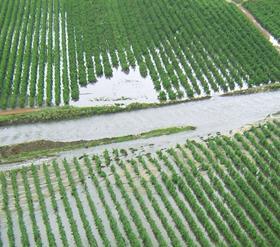
Not recognising the relationship between the food industry and climate change is a “serious mistake”, according to one lobbying group.
Slow Food has spoken out ahead of the Paris climate change talks (COP21) that will, for the first time in over 20 years of negotiations, aim to achieve a legally binding and universal agreement on climate, with the aim of keeping global warming below 2°C.
It said that in the 54-page negotiations document the term ‘agriculture’ doesn’t appear once, and stressed that leaving out this word means the discussion about food and climate will be relegated to the margins of talks.
Slow Food said agriculture can be viewed as a cause or a solution to climate change – but the fact that other sectors, such as energy, heavy industry or transport, are being prioritised means agriculture’s key position is not recognised.
It has now launched an appeal – ‘Let’s Not Eat Up Our Planet! Fight Climate Change’ – aimed at world leaders and representatives attending the talks in Paris, to ask that agriculture is placed at the centre of the debate.
The campaign aims to show that only through a “radical shift” in current systems of food production, processing, distribution, consumption and waste can climate change be mitigated.
“It is increasingly urgent that we restore value to food, reduce waste, promote agroecological practices and encourage short distribution chains,” Slow Food said.
“If, instead, the modern industrial agrifood production system continues to prevail – a system based on the growing use of oil derivatives, production on a huge scale and the indiscriminate exploitation of natural resources – not only will it not be possible to reverse current trends, but there will be an increasingly negative influence on the rising average temperature.”
Slow Food said the modern industrial agrifood model is based on the idea of infinite growth, despite the fact that the planet’s resources are finite.
“This is why we are asking for the nations and organisations gathering in Paris to promote effective international policies, aimed at radically changing the current food system,” the organisation said.
According to the Intergovernmental Panel of Climate Change (IPCC)’s Fifth Assessment Report, in the last century there has been a rise in global temperatures of 0.85°C.



